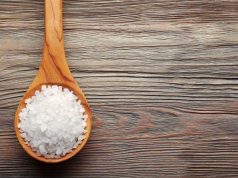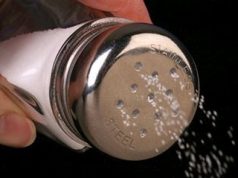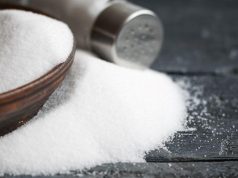Lowest CVD risk seen for those who combined a DASH-style diet with lowest frequency of adding salt to food
By Elana Gotkine HealthDay Reporter
TUESDAY, Nov. 29, 2022 (HealthDay News) — Lower frequency of adding salt to food is associated with reduced risk of cardiovascular disease (CVD), according to a study published in the Dec. 6 issue of the Journal of the American College of Cardiology.
Hao Ma, M.D., Ph.D., from the School of Public Health and Tropical Medicine at Tulane University in New Orleans, and colleagues examined whether the frequency of adding salt to foods was associated with incident CVD risk among 176,570 adults in the U.K. Biobank who were initially free of CVD.
A total of 9,963 total CVD events; 6,993 ischemic heart disease (IHD) cases; 2,007 stroke cases; and 2,269 heart failure cases were documented during a median of 11.8 years of follow-up. The researchers found that after adjustment for covariates and the Dietary Approaches to Stop Hypertension (DASH) diet, lower frequency of adding salt to foods was significantly associated with lower risk of total CVD events. The adjusted hazard ratios were 0.81, 0.79, and 0.77 across groups of usually, sometimes, and never/rarely, respectively, compared with always adding salt to food. Adding salt to food showed the strongest association with heart failure followed by IHD, while no association was seen with stroke. CVD risk was lowest for participants who combined a DASH-style diet with the lowest frequency of adding salt.
“This is meaningful as reducing additional salt to food, not removing salt entirely, is an incredibly modifiable risk factor that we can hopefully encourage our patients to make without much sacrifice,” a coauthor said in a statement.
Abstract/Full Text (subscription or payment may be required)
Editorial (subscription or payment may be required)
Copyright © 2022 HealthDay. All rights reserved.








